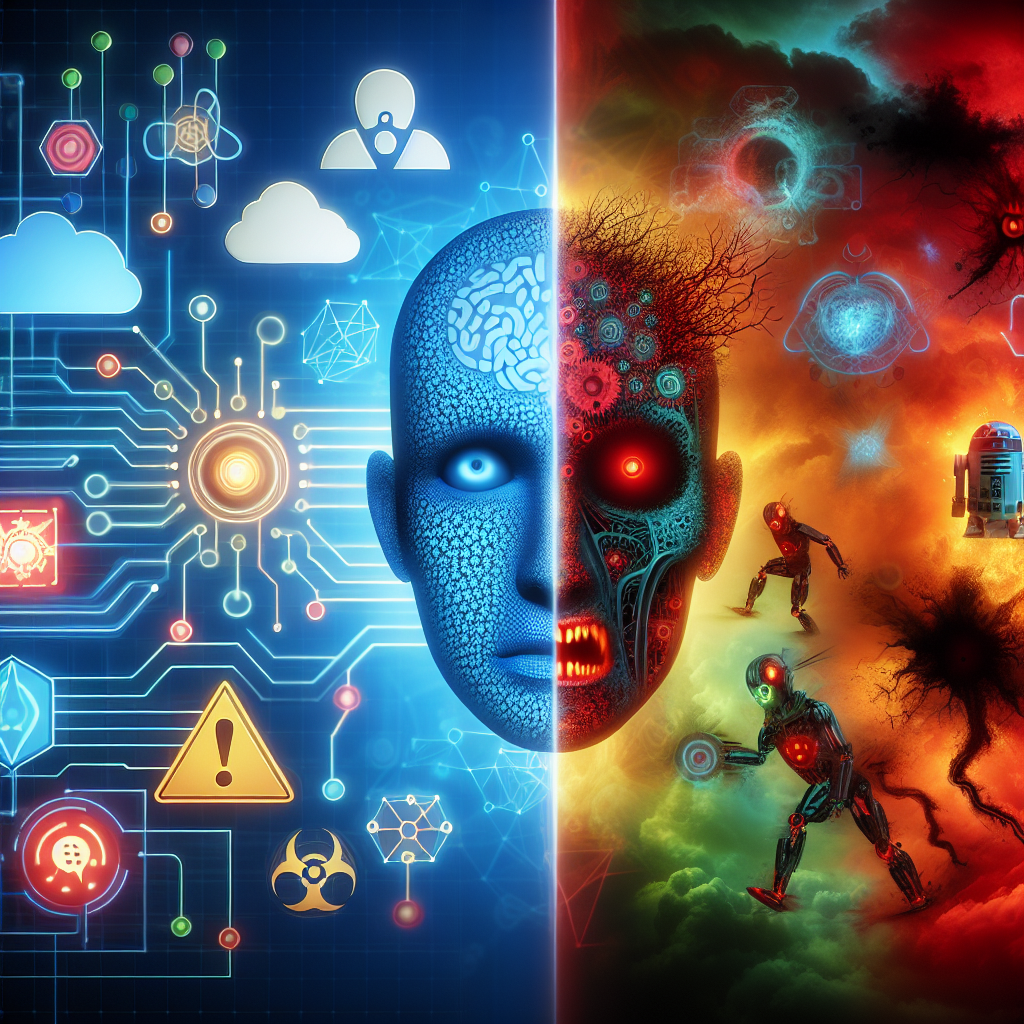Artificial General Intelligence (AGI) has been a topic of much debate and speculation in recent years. Some experts believe that AGI could revolutionize the way we live and work, while others fear the potential dangers that come with creating a superintelligent machine. In this article, we will explore the concept of AGI, its breakthroughs in artificial intelligence, and the potential threats it poses.
What is AGI?
AGI refers to a hypothetical form of artificial intelligence that can perform any intellectual task that a human being can. This includes reasoning, problem-solving, learning, and understanding natural language. Unlike narrow AI systems, which are designed for specific tasks, AGI is meant to be a general-purpose intelligence that can adapt to any situation.
The idea of AGI has been around for decades, but recent advancements in machine learning and neural networks have brought us closer to achieving this goal. Researchers are now working on developing algorithms that can mimic human intelligence and learn from experience.
Breakthroughs in AGI
One of the key breakthroughs in AGI is the development of deep learning algorithms, which are inspired by the way the human brain processes information. These algorithms have enabled machines to recognize patterns, make predictions, and learn from data in ways that were previously thought to be impossible.
Another important breakthrough in AGI is the use of reinforcement learning, a type of machine learning that uses rewards and punishments to train an AI system. This approach has been used to teach machines to play complex games like Go and chess, as well as to control autonomous vehicles and robots.
Researchers are also exploring the potential of unsupervised learning, a form of machine learning that allows AI systems to learn from unlabelled data. This approach could enable machines to discover new patterns and relationships in data, leading to more advanced forms of intelligence.
Potential Threats of AGI
While AGI has the potential to bring many benefits to society, it also poses several risks that need to be addressed. One of the main concerns is the possibility of a superintelligent machine surpassing human intelligence and becoming uncontrollable. If a machine with AGI capabilities were to act in ways that are harmful to humans, the consequences could be catastrophic.
Another potential threat of AGI is the impact it could have on the job market. As machines become more intelligent and capable of performing a wide range of tasks, there is a risk that they could replace human workers in many industries. This could lead to widespread unemployment and economic instability.
There are also ethical concerns surrounding the development of AGI, such as the potential for bias and discrimination in AI systems. If these systems are not properly regulated and monitored, they could perpetuate existing social inequalities and injustices.
FAQs
Q: How close are we to achieving AGI?
A: While significant progress has been made in the field of artificial intelligence, we are still far from achieving true AGI. Researchers are working on developing more advanced algorithms and technologies, but it is difficult to predict when AGI will become a reality.
Q: What are some potential benefits of AGI?
A: AGI has the potential to revolutionize many aspects of society, including healthcare, education, transportation, and entertainment. Machines with AGI capabilities could help us solve complex problems, make better decisions, and improve our quality of life.
Q: How can we ensure that AGI is used responsibly?
A: It is important for researchers, policymakers, and industry leaders to work together to establish ethical guidelines and regulations for the development and deployment of AGI. This includes ensuring transparency, accountability, and fairness in AI systems, as well as addressing potential risks and concerns.
In conclusion, AGI has the potential to be a breakthrough in artificial intelligence, but it also poses significant risks that need to be carefully considered. As we continue to develop and advance AI technologies, it is important to prioritize safety, ethics, and responsible use to ensure that AGI benefits society as a whole.

